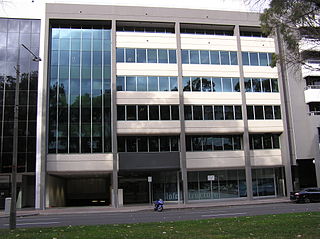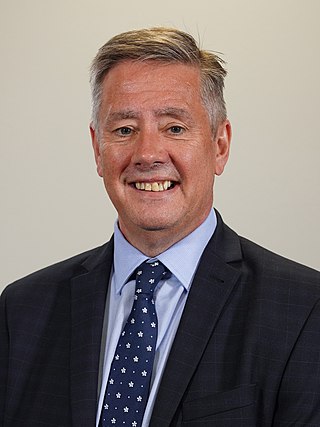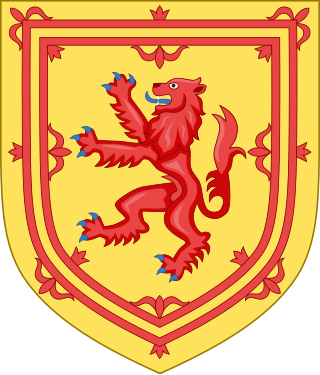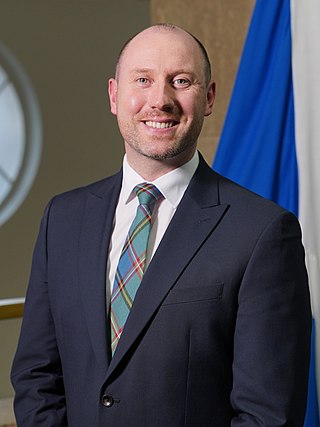
Public works are a broad category of infrastructure projects, financed and procured by a government body for recreational, employment, and health and safety uses in the greater community. They include public buildings, transport infrastructure, public spaces, public services, and other, usually long-term, physical assets and facilities. Though often interchangeable with public infrastructure and public capital, public works does not necessarily carry an economic component, thereby being a broader term. Construction may be undertaken either by directly employed labour or by a private operator.

A public–private partnership is a long-term arrangement between a government and private sector institutions. Typically, it involves private capital financing government projects and services up-front, and then drawing revenues from taxpayers and/or users over the course of the PPP contract. Public–private partnerships have been implemented in multiple countries and are primarily used for infrastructure projects. They have been employed for building, equipping, operating and maintaining schools, hospitals, transport systems, and water and sewerage systems.

Sir Daniel Grian Alexander is a former politician who was Chief Secretary to the Treasury between 2010 and 2015. He was the Member of Parliament (MP) for the Inverness, Nairn, Badenoch & Strathspey constituency from 2005 until the general election in May 2015. In his first parliamentary term (2005–2010), Alexander was the Liberal Democrat spokesperson for Work and Pensions (2007–2008), the Chief of Staff to party leader Nick Clegg, and Chair of the Liberal Democrat Manifesto Group (2007–2010).
The transport system in Scotland is generally well-developed. The Scottish Parliament has control over most elements of transport policy within Scotland, with the Cabinet Secretary for Transport, Infrastructure and Connectivity holding portfolio responsibility within the Scottish Government. Transport Scotland is the Executive Agency responsible for the Scottish transport network.

The economy of Scotland is an open mixed economy which, in 2020, had an estimated nominal gross domestic product (GDP) of $205 billion including oil and gas extraction in Scottish waters. Since the Acts of Union 1707, Scotland's economy has been closely aligned with the economy of the rest of the United Kingdom (UK), and England has historically been its main trading partner. Scotland still conducts the majority of its trade within the UK: in 2017, Scotland's exports totalled £81.4 billion, of which £48.9 billion (60%) was with the countries of the United Kingdom, £14.9 billion with the rest of the European Union (EU), and £17.6 billion with other parts of the world. Scotland’s imports meanwhile totalled £94.4 billion including intra-UK trade leaving Scotland with a trade deficit of £10.4 billion in 2017.

The Department of Infrastructure, Transport, Regional Development and Cities was an Australian Public Service department of the Government of Australia that existed between December 2017 and May 2019, charged with the responsibility for infrastructure and major projects, transport, local government, external territories administration, rural and regional development, population policy, and cities.

Keith James Brown is a Scottish politician serving as Depute Leader of the Scottish National Party (SNP) since 2018. He is a former Royal Marines commando and has been a Member of the Scottish Parliament (MSP) since 2007, first representing the Ochil constituency from 2007 to 2011, then the Clackmannanshire and Dunblane constituency since 2011. Brown previously served in the Scottish Cabinet, most recently as Cabinet Secretary for Justice and Veterans from 2021 to 2023.

The Minister for Transport is a member of the Scottish Government who reports to the Cabinet Secretary for Net Zero, Energy and Transport. As a Junior Minister the post holder is not a member of the Scottish Government Cabinet.

The Cabinet Secretary for Finance, commonly referred to as the Finance Secretary, is a member of the Cabinet in the Scottish Government. The Cabinet Secretary has Ministerial responsibility for the Scottish Government's Finance Directorates.

The Cabinet Secretary for NHS Recovery, Health and Social Care, commonly referred to as the Health Secretary, is a cabinet position in the Scottish Government. The Cabinet Secretary is responsible for the Health and Social Care Directorates and NHS Scotland.

The Cabinet Secretary for Rural Affairs, Land Reform and Islands, commonly referred to as the Rural Affairs Secretary, is a position in the Scottish Government Cabinet. The Cabinet Secretary is responsible for rural Scotland and its islands, agriculture, forestry, fisheries, aquaculture, food and drink, and crofting. The Cabinet Secretary is assisted by the Minister for Environment, Biodiversity and Land Reform, Màiri McAllan.

The Cabinet Secretary for Economy, Fair Work and Culture, commonly referred to as the Economy Secretary or the Culture Secretary, was a Scottish Government Cabinet position with responsibility for the economy and culture of Scotland. The role was formed in February 2020, with the existing Cabinet Secretary for Culture, Tourism and External Affairs, Fiona Hyslop taking on additional responsibilities for economic matters. Responsibility for external affairs was transferred to the Cabinet Secretary for Government Business and Constitutional Relations, with the post being renamed Cabinet Secretary for the Constitution, Europe and External Affairs, whilst tourism moved to the Rural Economy brief. On 19 May 2021 the position ceased to exist with the creation of the Cabinet Secretary for Finance and the Economy and the Cabinet Secretary for the Constitution, External Affairs and Culture

The Minister for Housing is a Junior ministerial post in the Scottish Government. As a result, the Minister does not attend the Scottish Cabinet.

Scottish Parliament committees are small groups of Members of the Scottish Parliament (MSPs) who meet on a regular basis to scrutinise the work of the Scottish Government, conduct inquiries into subjects within their remit and examine legislation. Much of the everyday work of the Scottish Parliament is done by these committees.
Global Infrastructure Partners (GIP) is an infrastructure investment fund making equity and selected debt investments. GIP's main headquarters are located in New York City and its equity investments are based on infrastructure assets in the energy, transport and water & waste sectors. GIP employs approximately 150 investment and operational professionals and has offices in New York, London and Sydney, with operational headquarters in Stamford, Connecticut. In total as of 2018, its portfolio companies employ approximately 21,000 people.
Hussein Abdi Halane is a Somali economist and politician. He twice served as the Minister of Finance of Somalia.

The Cabinet Secretary for Net Zero and Just Transition is a position in the Scottish Government Cabinet. The Cabinet Secretary has responsibilities for infrastructure, transport and energy. The Cabinet Secretary is assisted by the Minister for Transport, Minister for Environment, Biodiversity and Land Reform and Minister for Just Transition, Employment and Fair Work.

The Department of Infrastructure and Regional Development was an Australian Government department that existed between September 2013 and December 2017. Matters dealt with by the department included: infrastructure planning and coordination; transport safety; land transport; civil aviation and airports; maritime transport including shipping; administration of Australian territories; constitutional development of the Northern Territory and the Australian Capital Territory; regional programs; regional development; local government matters; and regional policy.
The Cabinet Secretary for Economy, Jobs and Fair Work was a position in the Scottish cabinet until June 2018. The Cabinet Secretary had responsibilities for the Scottish economy, infrastructure, trade and investment, business, industry, employment, trade unions and energy. The Cabinet Secretary was assisted by the Minister for Business, Innovation and Energy and the Minister for Employability and Training. The post was abolished in June 2018, with the "economy" part of the brief moving to the Cabinet Secretary for Finance, Economy and Fair Work and the infrastructure responsibilities moving to the Cabinet Secretary for Transport, Infrastructure and Connectivity.

The ferry fiasco is a term that refers to an ongoing Scottish political controversy relating to the construction of two ferries, MV Glen Sannox and Hull 802, by Ferguson Marine Ltd, for the state-owned ferry operator Caledonian MacBrayne under direction of Caledonian Maritime Assets Ltd (CMAL), Transport Scotland, and the Scottish Government. The project has suffered from major delays, and costs have trebled to £293 million.The main contractor, Ferguson Marine, was nationalised by the Scottish Government in December 2019 with debts of £70 million. It is now classified as an executive non-departmental public body of the Scottish Government.














